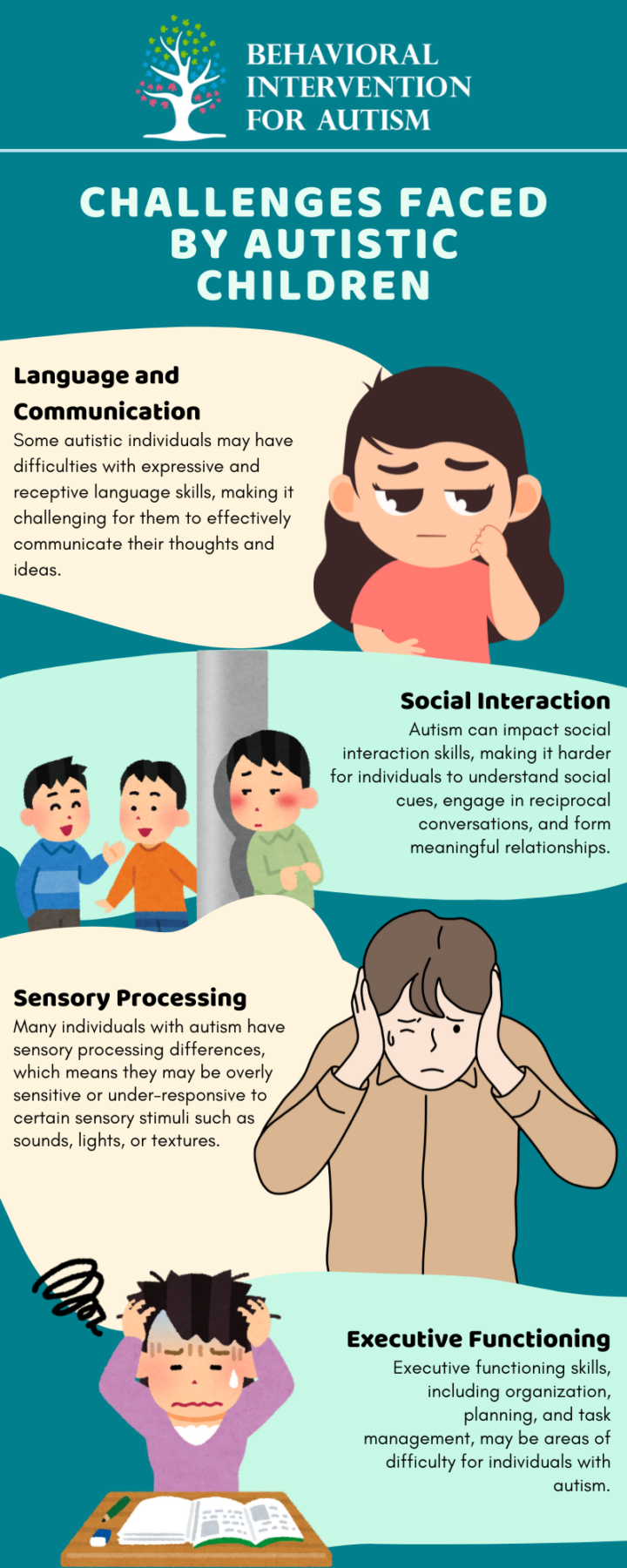
Table of Contents
Understanding the distinction between autism and learning disabilities is crucial. Although autism spectrum disorder (ASD) is not classified as a learning disability, it affects learning in ways that resemble learning disabilities. We explore the distinctions between autism and learning disabilities, while also investigating their potential co-occurrence.
Is Autism a Learning Disability?
Autism is not classified as a learning disability, though it can impact learning in various ways. Autism Spectrum Disorder (ASD) is a developmental disorder that affects communication, social interaction, and behavior. While individuals with autism may experience challenges in these areas, it does not inherently limit their ability to learn. Many people with autism have unique learning styles and strengths, and they may benefit from tailored educational approaches that address their specific needs.
However, it is important to recognize that individuals with autism can also have co-occurring learning disabilities. These can affect their academic performance and may require additional support. Thus, while autism itself is not a learning disability, it can intersect with learning challenges that necessitate individualized educational strategies. For those seeking support, understanding these nuances is crucial in providing effective and empathetic assistance.
Autism vs. Learning Disabilities
Autism spectrum disorder (ASD) is a neurodevelopmental condition that affects social interaction, communication, and behavior. It is characterized by a range of symptoms that can vary in severity from person to person. While autism does impact learning, it is not classified as a specific learning disability.
On the other hand, learning disabilities refer to a group of disorders that affect the acquisition and use of specific academic skills. These skills include reading, writing, and math. Children with learning disabilities may struggle with processing information, organizing thoughts, and retaining knowledge in these areas. It’s important to note that learning disabilities can co-occur with autism, but they are separate categories under special education law.

Co-occurrence of Autism and Learning Disabilities
Research has shown that learning disabilities can occur at higher rates in individuals with autism compared to those without autism. Approximately 1 in 3 autistic individuals also have a learning disability. However, it’s essential to recognize that these numbers can vary across different age groups.
Interestingly, the presence of a learning disability increases the likelihood of an autism diagnosis. People with a learning disability are 26 times more likely to be diagnosed with autism compared to those without a learning disability. This highlights the complex relationship between autism and learning disabilities.
While autism is not categorized as a learning disability, it is important to acknowledge the potential impact of autism on learning. Children with autism may require specialized educational services to address their unique learning needs. By understanding the co-occurrence and distinctive features of these conditions, parents, caregivers, and educators can provide appropriate support and interventions to facilitate optimal learning outcomes for individuals with autism.
The Impact of Autism on Learning
Understanding autism and its impact on learning is crucial, especially since autism spectrum disorder (ASD) is not classified as a learning disability. However, ASD affects learning in ways that are similar to learning disabilities. Kids with autism often qualify for special education services because their unique needs require tailored support.
Developmental Areas Affected
Autism has a broader impact on development compared to specific learning disabilities (SLDs). While SLDs primarily affect academic skills such as reading, writing, and math, autism affects various developmental areas. These areas may include communication, social skills, sensory processing, repetitive movements, and limited interests.
Children with autism may experience challenges in areas such as:

Educational Challenges
The impact of autism on learning can present unique educational challenges. Autistic individuals may require specialized teaching strategies and support to optimize their learning experience. Some common challenges that may arise in an educational setting include:
- Difficulty with transitions: Changes in routine or transitioning between tasks can be particularly challenging for individuals with autism. Providing visual schedules or advance notice can help mitigate these difficulties.
- Sensory sensitivities: Sensory sensitivities can disrupt learning and concentration. Creating a sensory-friendly environment or providing sensory accommodations can help minimize distractions.
- Social interactions: The social nature of classrooms can be overwhelming for individuals with autism. It’s important to create inclusive environments that promote understanding and acceptance among peers.
- Communication barriers: Communication difficulties can hinder academic progress. Implementing augmentative and alternative communication systems or providing speech and language therapy can support communication development.
- Executive functioning challenges: Difficulties with executive functioning can impact organizational skills, time management, and task completion. Teaching strategies that break tasks into smaller, manageable steps can be beneficial.
Understanding the impact of autism on learning allows educators, parents, and caregivers to provide the necessary support and accommodations to help individuals with autism thrive in an educational setting. By recognizing the unique challenges and tailoring strategies to address them, it becomes possible to create an inclusive learning environment that promotes growth and success for individuals with autism.
Unique Abilities and Strengths
While autism may present unique challenges in certain areas of learning, it is important to recognize that individuals with autism possess their own set of exceptional abilities and strengths. These abilities can manifest in various ways, highlighting the diversity and talents within the autism spectrum.
Exceptional Skills in Autism
One remarkable aspect of autism is the presence of exceptional skills in certain individuals. These skills often fall outside the realm of what is considered typical or average. Many individuals with autism display extraordinary abilities in areas such as art, music, mathematics, and science.
Some individuals with autism exhibit remarkable attention to detail and an ability to perceive patterns that others may overlook. This attention to detail can be particularly advantageous when it comes to artistic pursuits, where precision and intricate work are valued. Many artists with autism have gained recognition for their unique artistic expressions and contributions.
In addition to art, individuals with autism may also demonstrate exceptional musical abilities. Some individuals possess an innate talent for playing musical instruments, composing music, or having an extraordinary sense of pitch and rhythm. Music can serve as a powerful form of expression and communication for individuals with autism.
Academic Proficiency in Specific Domains
While individuals with autism may face challenges in certain academic areas, there are instances where they display remarkable proficiency in specific domains. Some individuals with autism possess an intense focus and a deep interest in particular subjects, allowing them to excel in those areas.
For example, individuals with autism may demonstrate exceptional mathematical skills. They may possess an innate understanding of complex mathematical concepts or have an exceptional ability to solve mathematical problems. This affinity for numbers and patterns can lead to advanced mathematical abilities.
Similarly, individuals with autism may exhibit advanced knowledge in scientific fields. Their attention to detail, logical thinking, and ability to process information differently can contribute to a deep understanding and proficiency in scientific subjects. Some individuals with autism have made significant contributions to scientific research and discoveries.
It is important to recognize and nurture these exceptional skills and strengths in individuals with autism. By providing opportunities for further development and exploration in these areas, we can help individuals with autism harness their unique talents and thrive in their chosen fields.
Understanding and appreciating the exceptional abilities and strengths within the autism spectrum can lead to a more inclusive and supportive society that values the diverse talents and contributions of individuals with autism.
Importance of Early Intervention
Early intervention plays a pivotal role in supporting individuals with autism, particularly when there are co-occurring learning disabilities. By providing tailored therapies and educational programs at an early stage, we can enhance the development and learning outcomes of autistic individuals.
Tailored Therapies and Educational Programs
Tailored therapies and educational programs are essential components of early intervention for individuals with autism. These interventions are designed to address the specific needs and challenges faced by autistic individuals, helping them develop essential skills and overcome learning difficulties.
One commonly used therapy is Applied Behavior Analysis (ABA), which focuses on teaching desired behaviors and reducing challenging behaviors through systematic reinforcement and prompting techniques. ABA interventions can be highly effective in improving communication, social skills, and academic performance in individuals with autism.
Speech-language therapy is another crucial aspect of early intervention. It aims to enhance communication skills, including speech production, receptive and expressive language abilities, and pragmatic language skills. Speech-language therapists employ various techniques and strategies to support individuals with autism in developing effective communication skills.
Occupational therapy is also beneficial for autistic individuals, as it focuses on improving fine motor skills, sensory integration, and daily living skills. Occupational therapists work with individuals to enhance their ability to engage in day-to-day activities independently, promoting overall well-being and independence.
In addition to therapies, educational programs tailored to the unique needs of autistic individuals are fundamental for their learning and development. These programs often involve individualized education plans (IEPs) that outline specific goals, strategies, and accommodations to support the learning and educational progress of autistic students.
Enhancing Development in Autistic Individuals
Early intervention not only targets specific learning challenges but also aims to enhance overall development in autistic individuals. By identifying areas of strength and interest, interventions can be tailored to capitalize on these strengths, allowing individuals with autism to explore and excel in their preferred domains.
For example, some autistic individuals demonstrate exceptional skills in mathematics, visual arts, music, or computer programming. Recognizing and nurturing these abilities can boost their self-esteem, foster a sense of accomplishment, and provide opportunities for further growth and success.
Intervening early and providing the necessary support helps autistic individuals reach their full potential and maximize their learning opportunities. Early intervention programs, along with ongoing support and collaboration between parents, caregivers, educators, and therapists, create a comprehensive framework for promoting the development and well-being of individuals with autism.
Remember, each individual with autism is unique, and their needs may vary. It is important to consult with professionals experienced in working with autistic individuals to design and implement appropriate early intervention strategies that align with their specific strengths, challenges, and goals.
At Behavioral Intervention for Autism, we offer personalized ABA therapy tailored to meet the unique needs of each client. Our dedicated team provides high-quality services to ensure the best possible outcomes. For exceptional aba therapy in Florida, trust us to support your journey.
Contact us today to get started.
- 9 Common Obsessions of Children With Autism You Should Know - February 25, 2025
- What is Neurodiversity? A Guide to Embracing Differences - February 25, 2025
- Understanding Hyperfocus in Autism: What It Means and Why It Happens - February 25, 2025
